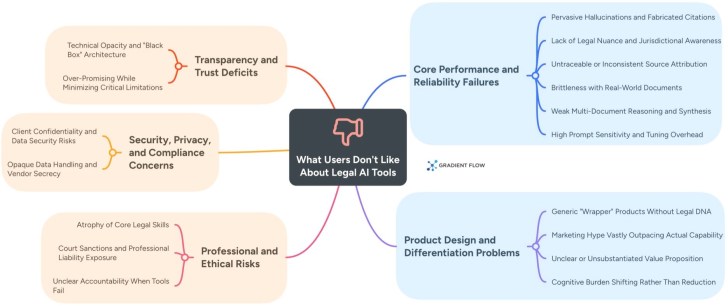Legal AI Unpacked: What Works, What Fails, What’s Next
NeutralArtificial Intelligence

- Law firms are increasingly adopting generative AI tools, reflecting a historical trend of early adoption in the legal sector for document search and classification. This shift indicates a growing reliance on AI technologies to enhance efficiency in legal services, as highlighted by recent discussions in the business press about the potential automation of knowledge work in this field.
- The integration of generative AI within law firms is significant as it represents a pivotal moment for the legal industry, which has traditionally been text-intensive. This adoption could lead to transformative changes in how legal research and services are conducted, potentially reshaping the profession's landscape.
- This development aligns with broader trends in enterprise environments where AI is increasingly seen as a critical tool for enhancing operational efficiency. The legal sector's embrace of AI not only underscores its vulnerability to automation but also raises questions about the future of knowledge work across various industries, as firms seek to leverage technology for competitive advantage.
— via World Pulse Now AI Editorial System
